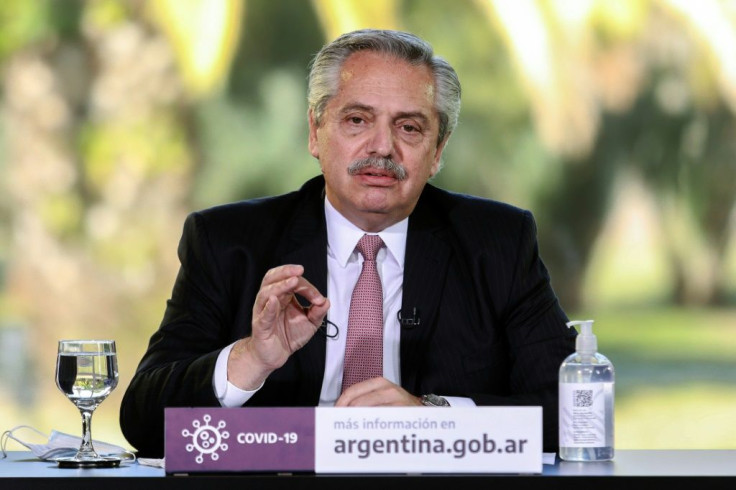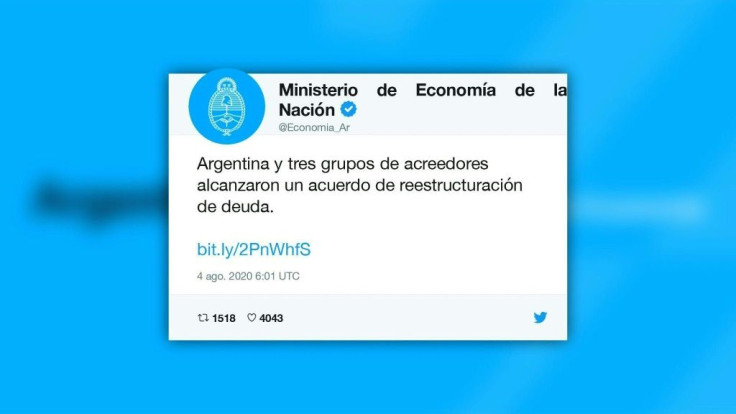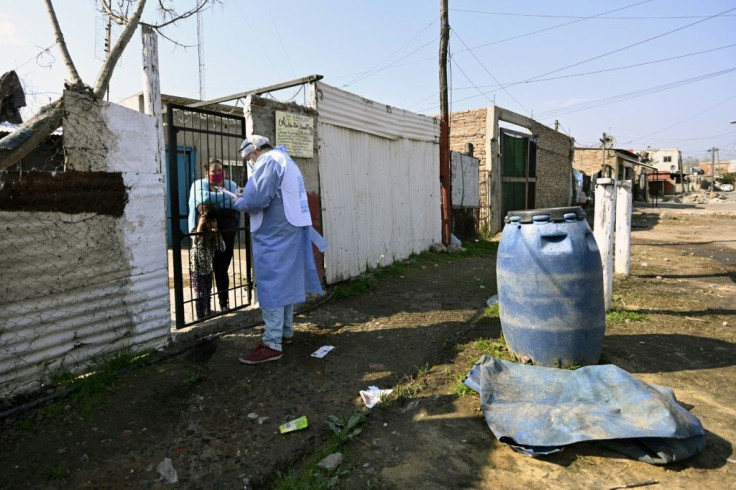Despite Debt Deal, Argentina's Economic Woes Remain
Argentina's President Alberto Fernandez has reached a deal with creditors to restructure a $66 billion debt following months of wrangling, but analysts say that won't be enough to solve the crisis-wracked country's economic woes.
The government is now expected to focus on renegotiating the repayments of its $44 billion loan from the International Monetary Fund as well as other multi-billion dollar debts.
Fernandez celebrated Tuesday's "impossible" resolution, achieved despite the added financial pressure imposed by the coronavirus pandemic, saying the "horizon is clear" to reach further agreements.
But analysts are not convinced that Argentina is in the clear yet.
"It takes the pressure off, but it's not enough," said economist Mariana Dal Poggetto, director of consultants EcoGo.

The bonds related to Tuesday's agreement, issued under foreign legislation, represent roughly a fifth of the country's $324 billion debt, which amounts to around 90 percent of its GDP.
As well as its IMF loan, Argentina must resolve the situation surrounding a $41.7 billion debt issued under national legislation whose payments have been deferred until December 2021.
The country has been in recession since 2018 and the IMF expects its GDP to shrink by almost 10 percent this year, due to effects of the pandemic.
Already more than a third of the country's population of 44 million live in poverty, and annual inflation stands at 40 percent.
Argentina is due to repay the $44 billion to the IMF over the next four years, "which is untenable," according to Capital Economics analyst Nikhil Sanghani.

The government "needs to clear things up with the International Monetary Fund and consolidate the fiscal front," added Dal Poggetto.
But Argentina is increasing its fiscal deficit due to an ambitious plan of subsidies the center-left government has implemented to help the most vulnerable in society.
"It will be vital for the Argentine government to set credible and sustainable fiscal and monetary policies to support an eventual return to international capital markets" that it lost two years ago, said the vice president of Moody's credit ratings agency Gabriel Torres.

When Fernandez assumed office in December 2018, he suspended the remaining $13 billion of disbursements from the $57 billion bail-out loan his predecessor Mauricio Macri had agreed with the IMF.
"The IMF payments begin in September of next year, one month before legislative elections," said Dal Poggetto, adding that Fernandez will need to renegotiate "quickly."
But the "real problem" is that the IMF "doesn't accept discounts" so Argentina cannot come to an arrangement like the one with creditor groups, said economist Emanuel Alvarez Agis.
The IMF "will ask for a consistent economic plan, whereas so far (Argentina) hasn't offered more than general terms," said Matias Carugati from Management & Fit consultants.
However, Sanghani believes that "the IMF will provide additional funding to Argentina in a repackaged agreement which also extends the current debt repayment schedule" beyond the current four years.
In the short-term, the deal "clears maturities, decompresses demand for the dollar and allows for the release of huge fiscal resources to deal with the pandemic," said the Argentine Center for Political Economy.
"The eventual access to international credit in the medium term could make company financing cheaper in the pandemic context where leverage is key."
It's a "big step" forward, according to Marcelo Fernandez, president of a group of business chambers.
"For the small- and medium-sized companies, it means we can bank on policies that benefit financing for production and consumption."
Unemployment has increased to 10.4 percent during the pandemic while the economy shrank by 13.2 percent over the first five months of 2020.
The deficit will grow "just like in the rest of the world. The difference is that Argentina, despite the deal, doesn't have access to credit," she added.
© Copyright AFP 2024. All rights reserved.





















